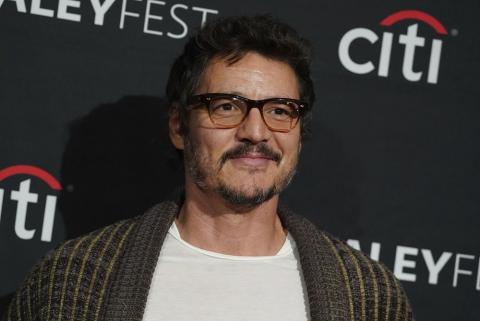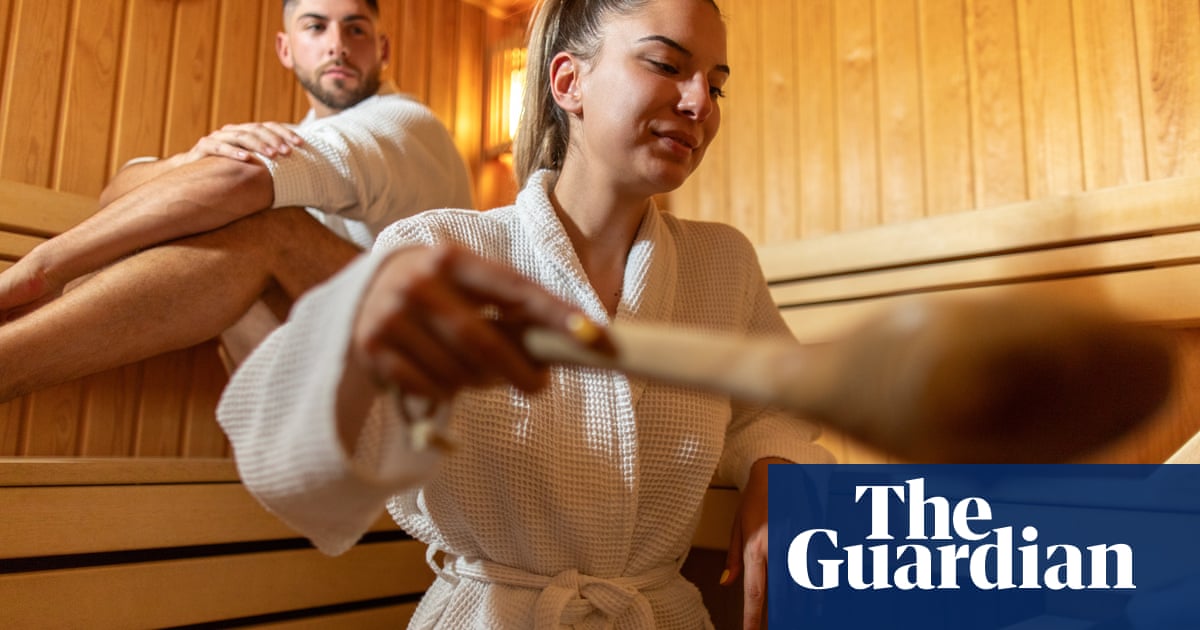
ochenda Sandall is days away from performing a one-woman play and has not yet been allowed inside the auditorium for more than five minutes. Rehearsals have been held in the theatre’s foyer, behind a screen, but she will get some preparation time inside before the first night, she says. “I promise not to fall off the end of the stage!”
Socially distant theatre clearly comes with challenges for actors but Sandall isn’t complaining. She is just pleased to be among a vanguard of performers getting live theatre back on its feet after almost six months of darkness. “We have to get the ball rolling and if it means it being a little weird for a while then I’m more than happy to be part of that,” she says.
Things could always be worse, too. “I went to stay in an Airbnb in Brighton the other week and there was a lady in the bar who was singing in a glass box. I thought: Is that where we’re going to end up? In a Perspex box on stage?”
Sandall was delighted to be asked by the Bridge theatre’s artistic director, Nicholas Hytner, to perform Alan Bennett’s The Outside Dog to a live audience as part of a socially distanced series this autumn. It is from Bennett’s Talking Heads monologues, written for BBC TV in the 1980s and 90s and updated for broadcast this summer, complete with a star cast (Kristin Scott Thomas and Maxine Peake among others). Sandall has already played the role for the television version that was recorded on the set of EastEnders during lockdown because “at that point, it was still being cleaned but not used, so it was the cleanest set in London”.
In its original 1998 incarnation, this monologue’s lonely protagonist, Marjory, was played by Julie Walters with gently insinuating humour as she contemplates what her often-absent husband might be getting up to. In Sandall’s hands, the story becomes dark, dangerous and filled with noirish tension. Sandall watched several of the original monologues including Walters’ – “I love anything with her in it”– and both she and the director, Nadia Fall, sought to draw out the themes that felt most current. “There is serious domestic violence, abuse and rape in between the lines … You can either skip over that or go through it. I wanted to go through it.”
Her Marjory is far more evidently a victim of domestic violence, as well as a silent accomplice to her husband’s crimes (to say more would be to give the plot away). Sandall says that the news reports of rising domestic violence during lockdown definitely infused her performance, and she sought to show the psychological complexity of this kind of abuse. “There are so many more dimensions to domestic abuse than being punched in the face. There’s the mental abuse, the abuse through control … And sometimes victims get it in their head that this is their lot. I really wanted to capture a sense of Marjory feeling completely alone.”
Sandall grew up in Goxhill, a village outside Grimsby, and got interested in acting after her step-father introduced her to am-dram musical theatre as a teenager. She left for London at the age of 17, first to attend East 15 Acting School (where she met her partner, Mark Stanley, an actor in Game of Thrones) and then Rada. In the eight years since graduation, she has worked on stage and screen but in 2018 she landed her meatiest role as arch law-breaker Lisa McQueen in Jed Mercurio’s police procedural Line of Duty.
“She’s a very driven woman,” says Sandall of McQueen, a woman who has ended up in the male-dominated higher echelons of an organised crime gang. Does Sandall think we are seeing more female villains like her on screen? “For sure. There’s Jodie Comer’s character in Killing Eve, and Top Boy is another one where you see women playing these solid roles. Yeah, we are moving into a world where we see more female villainy.”
And what about women of colour on TV? “If you go in and absolutely smash it like Michaela Coel has done – giving 110 per cent because that’s what she has given – it does change things for the better. Michaela’s show [I May Destroy You] is such a blast of newness. I look at her and I see the future. I think someone like her is opening a closed door – she’s letting everybody in.”
The gains on screen must be combined with behind-the-scenes changes too, though, from crews to makeup trailers and writing. “It is changing but it’s a slow journey. I know writers [of colour] who are being invited in, especially now that people have had the time to read things during the pandemic. Obviously there are loads of negatives but this is one positive that comes out of the pause.”
Sandall is of mixed British Jamaican heritage and says she has never faced racial stereotyping in her professional life, nor any serious racism in her upbringing, although she was the only person of colour at her school; which was how she earned the lead role in a school play, Sister Act, which ultimately convinced her to go into acting. “They gave me Whoopi Goldberg’s part.”
But her family’s experiences of growing up in rural Lincolnshire tell another story. “My mum’s upbringing was a lot worse than mine because she and her three sisters were the only black children for miles. My grandmother married my grandfather, a very tall Jamaican man, and she would get buckets of water thrown on her, and cigarette butts all over the front lawn, because nobody agreed with the fact that she had married a black man.”
Her mother, a teacher, lives near Hull now, and although Sandall stresses that her home town has changed since, she still couldn’t wait to get away as soon as she could. “I wanted to be in a rainbow-coloured street and around people who looked like me. I never knew much about black culture until I moved to London and it was amazing for me. I really learned who I am here.”
She has just finished working on Steve McQueen’s series Small Axe, which dramatises the real-life experiences of London’s West Indian community and the activism of the Mangrove Nine – a group of anti-racist protesters in the 1970s. She stars alongside Letitia Wright and John Boyega, and it is the first time she has been cast in a part overtly about race.
She knew she wanted to be in the show the minute she heard about it. “I had never known the story of the Mangrove Nine but when you know about it, you realise that it’s a monumental part of British history and it should be taught in schools. Right now, it’s a massive part of British history that’s missing.”
Two films from the five-part series, Mangrove and Lovers Rock, were selected for Cannes this year, and McQueen dedicated them to “George Floyd and all the other black people that have been murdered, seen or unseen, because of who they are, in the US, UK and elsewhere”.
Sandall plays the activist Barbara Beese. “I got to meet her during filming,” she says. Did she see Sandall play her on set? “No, she didn’t want to come on set. You’ve got to remember that the experience these people went through was awful and they don’t necessarily want to relive it.”
How did it make Sandall feel to re-enact this history herself? “It was very difficult but also a hugely proud moment to stand tall with this piece. Of course it makes you angry. In the trailer, you can see us protesting and it looks the same in the 1960s as it did in the pictures from three or four weeks ago. It’s heartbreaking in that sense that we are still holding Black Lives Matter signs up.”
The Outside Dog and The Hand of God are at the Bridge, London, 9–26 September. The first film from the Small Axe anthology, Mangrove, will open the BFI London film festival on 7 October.












